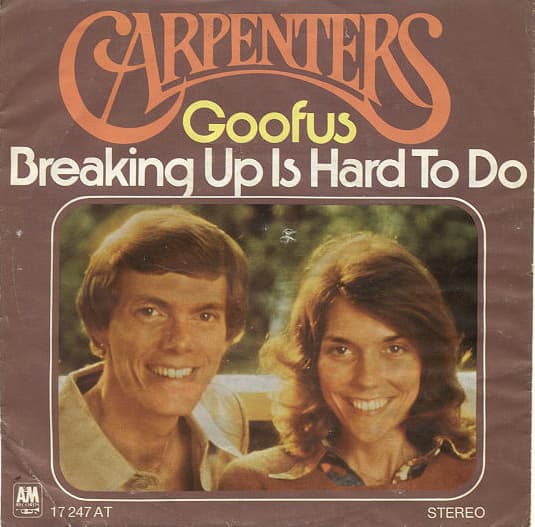
The Carpenters’ “Goofus”: A Nostalgic Revival That Missed the Charts
When The Carpenters decided to take on “Goofus” in 1976, it was an intriguing choice. Originally a 1930s popular tune with music by Wayne King and William Harold and lyrics by the legendary Gus Kahn, the song had a nostalgic charm that harkened back to simpler times. Known for their melodic pop ballads and lush harmonies, The Carpenters hoped to breathe new life into this old classic. They included it on their album A Kind of Hush, hoping to remind their audience of their signature sound while showing a slightly quirky side. However, despite its historical significance and their best efforts, “Goofus” marked a turning point in the career of this sibling duo.
In the 1970s, The Carpenters had become one of the most successful musical acts, regularly topping the charts with hits like “Close to You” and “Top of the World.” So when they released “Goofus” as a single, fans and industry insiders were curious to see how it would fare. Unfortunately, it didn’t follow the path of their previous hits. Despite its catchy melody and Karen Carpenter’s unmistakable voice, the song didn’t resonate with a mass audience the way their earlier work had. “Goofus” peaked at a modest #56 on the Billboard Hot 100, making it their first single since “Ticket to Ride” in 1970 that failed to break into the coveted top 40. On the Easy Listening chart, where The Carpenters usually dominated, it reached #4—a respectable showing, but far from their usual chart-topping status.
Internationally, the reception was similarly lukewarm. In Canada, the song only managed to reach #82 on the singles chart, and on the Cash Box Top 100, it placed even lower at #87. These numbers reflected a shift in the musical landscape. By the mid-1970s, the soft pop that had defined The Carpenters’ earlier success was beginning to give way to the growing influence of disco, rock, and more up-tempo styles.
Despite its lackluster commercial performance, “Goofus” remains a curious footnote in the duo’s discography. For those familiar with the original version, it served as a playful homage to a bygone era. For Carpenters fans, it represents a moment when the unstoppable hit machine began to show signs of slowing down. Yet, like all of their music, Karen Carpenter’s voice shines through, bringing warmth and sincerity to the whimsical lyrics.